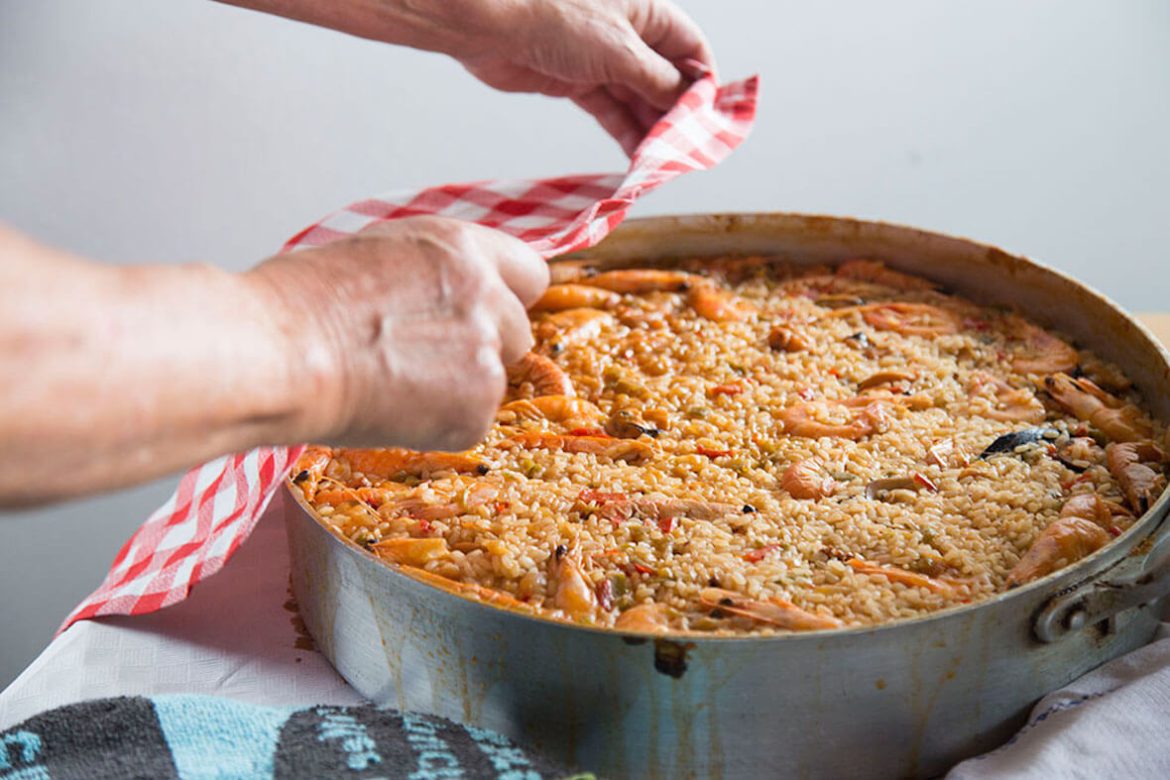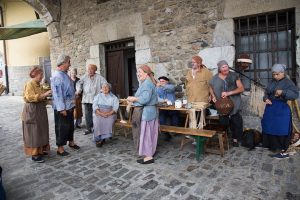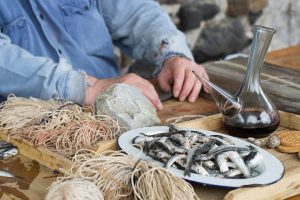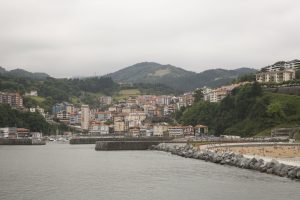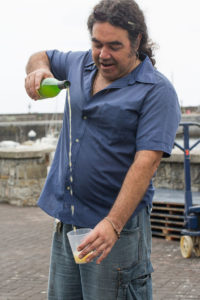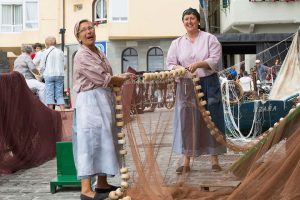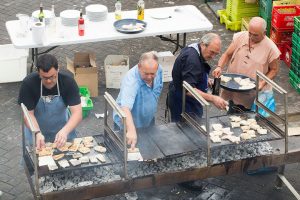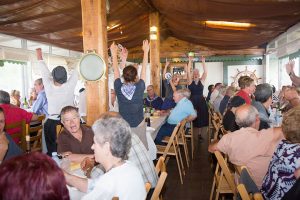
At Chopt Creative Salad Co., we love to travel. Every 60 days, we offer three new salads inspired by street vendors, local food producers and home chefs we’ve met from Vietnam to Mexico, and everywhere in between. Our blog, Chopt Travels, is how we share our research, and, most important, the stories of the characters who stole our hearts and filled our bellies.
As the creative director at Chopt, I travel around the world to eat, photograph and connect with the people and places that inspire our menu. I smuggle home ingredients and make connections with like-minded innovators working in the world of food. Dream job, I know.
Come along as we take your lunch to places it has never gone before.
—Julia Sherman, Creative Director at Chopt, and author of the blog and book Salad for President.

It was my very first time in Spain and I was researching the regional food for an upcoming round of Spanish-inspired salads. Naturally, I ate my weight in jamón and cheese in Barcelona, and gooey tortilla española in Madrid. I had fallen hard for the tapas culture, and wanted more. It was the preserved fish and spicy pickled peppers, and the casual restaurant culture that strummed at my heartstrings.I couldn’t just stop in Catalonia; you’ve got to continue north into the the Basque region, famous for their nightly tapas crawls and fresh seafood.
Like so many of the gemlike enclaves along the Basque coastline, Mutriku is lined with dramatic ocean vistas and flanked by vineyards on a steep ridgeline up above. I had been told these parts were steeped in tradition, but I didn’t expect to travel back in time upon arrival. Ambling down the uneven cobblestone streets, the people were dressed like 19th-century wenches and seafaring men—so convincing, it took me a moment to realize they were in costume. Down by the pier, a performance spilled out into the street. I had arrived on a very special day: This was the annual fisherman’s festival, a homegrown occasion with free-flowing food and wine that doubles as a love affair with the Cantabrian Sea.
Characters were crooning from balconies and swash-buckling along the pier. Under a nearby alcove, I found the real action: two women were seated at a rustic table, a mountain of delicate fish bones collecting at their espadrilled feet. Peering through spectacles, they were meticulously scrubbing the delicate skin of each individual anchovy, trimming the fins and tails with manicure scissors, and carefully tapering the sides of each fillet to create a pleasing shape. Each little flavor bomb was then laid flat and packaged, unless it was scooped up, sandwiched between two pieces of bread and promptly devoured by passerbuy.
I had taken such an intense interest in their handiwork, photographing each anchovy backwards and forwards, that the ladies invited me to the celebratory dinner hosted by the gastronomic societies in town. Instead of eating at restaurants, people here belong to collectively run private dining clubs called txokos. Since everyone in town seems to be either a fisherman or an excellent cook, this arrangement works out just fine.
I followed along as a small crew broke off and made their way to the dining hall perched above the port. Clusters of members from each gastronomic society shuffled to deliver massive pans of paella, each four inches in diameter. Inside were long tables packed with active and retired fishermen, singing songs and waving handkerchiefs in the air. As the only guest in contemporary clothing, I felt like an alien from another planet, here to learn to swing my chalice and sing their songs for one surreal night.
I claimed a spot at one of the long communal tables, and, as luck would have it, my dinner partner was none other than the town’s most celebrated octopus fisherman. He explained that Mutriku is famous for their tinned fish, in a part of the world where the best of it is set aside for preserving (baby octopus included). He told me how he and his friends had caught the beautiful white hake we would be eating that night, set to grill outside by a rotating cast of volunteer cooks. Their cooperative ways were impressive: one flipped, the other sauced and a small army ran the plates inside to the hungry fishermen. Most important, the assembly line involved lots of theatrical pouring of txakoli, the bubbly Basque wine that goes down like water.
Just when I felt myself swept up in the romance of communal cooking and revelry, I noticed some unrest erupt in the kitchen that required immediate attention. It seemed one giant paella was skimpy on the seafood, an unforgivable sin in a world where seafood is the raison d’etre. That one abject dish, shamefully heavy on the rice, brought my jolly table down from their high. The culprit would not fess up, and the mood turned rather dark (remember, as jolly as they were, these people had been drinking all day). It was not all fun and games, after all—but it was all delicious.


